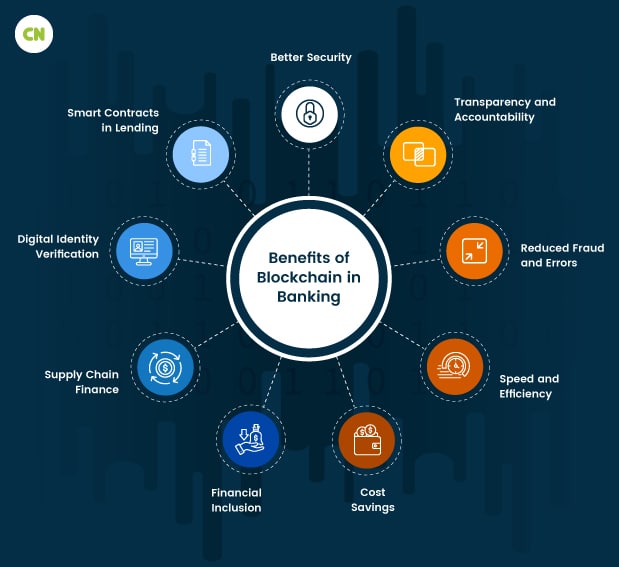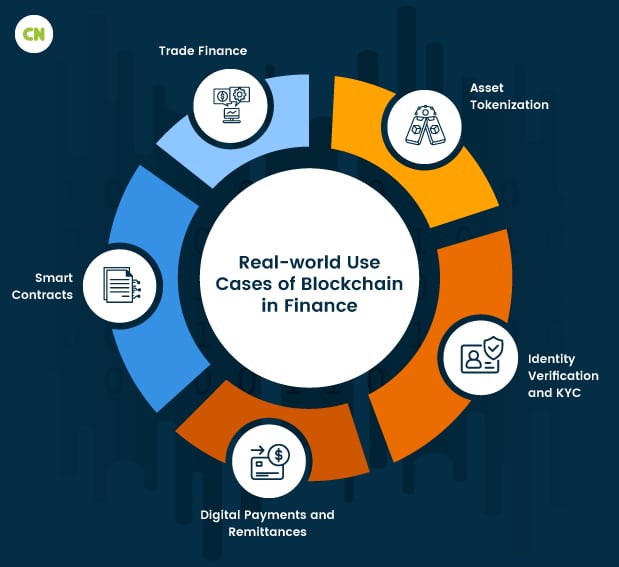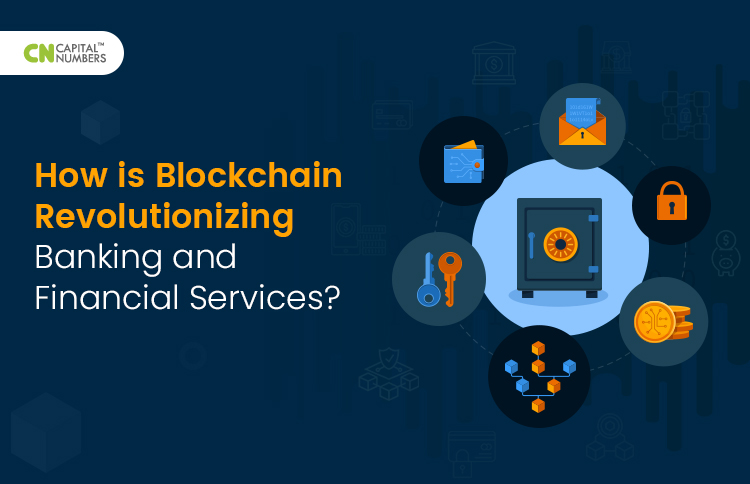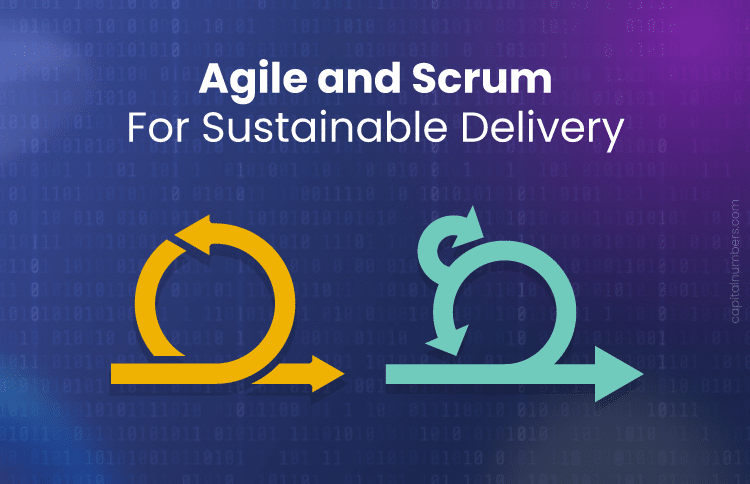How is Blockchain Revolutionizing Banking and Financial Services?
Table of Contents
In the ever-evolving landscape of finance, blockchain technology is bringing changes. Blockchain in banking isn’t just a technological leap; it signifies a fundamental shift in how financial services operate, promising enhanced security, transparency, and efficiency. As blockchain reshapes security measures and streamlines complex operations, its impact on the industry is undeniable.
Yet, integrating blockchain into the existing banking framework isn’t easy. And this is where the importance of custom blockchain development services comes in. In the evolving landscape of blockchain in banking, these bespoke services pave the way for tailored innovations that address specific challenges and drive industry-wide transformation.
Eager to explore how blockchain can be a game-changer in banking? Read on.
Benefits of Blockchain in Banking
Better Security:
Blockchain’s decentralized and immutable ledger system ensures robust security. This makes it difficult for unauthorized parties to tamper with transaction data.Transparency and Accountability:
It provides transparency through a shared, tamper-resistant ledger that ensures accountability among all participants in the network. Transactions are visible to all authorized parties, reducing the potential for hidden activities.Reduced Fraud and Errors:
Blockchain’s cryptographic verification and consensus mechanism minimize fraud and errors in financial processes. Various nodes validate transactions, reducing the risk of fraudulent activities.

Speed and Efficiency:
Transactions on blockchain networks are faster and can be settled in real-time. It reduces the processing times compared to traditional banking systems. This speed contributes to improved customer experiences and quicker financial operations.Cost Savings:
By removing intermediaries and streamlining processes, blockchain can significantly reduce operational costs associated with traditional banking. Eliminating third-party verification and reconciliation processes results in significant cost savings for financial institutions.Financial Inclusion:
Blockchain can extend banking services to unbanked and underbanked populations. It provides them with access to financial services and opportunities.Supply Chain Finance:
It enhances transparency and traceability in supply chains. It reduces fraud and errors in trade finance processes.Digital Identity Verification:
It enables secure digital identity verification, streamlining customer onboarding processes and reducing the need for extensive paperwork. All these contribute to improving the customer experience.Smart Contracts in Lending:
Smart contracts automate lending processes, reducing paperwork and expediting loan approvals. These self-executing contracts automatically enforce the terms and conditions of loans, eliminating the need for manual intervention.
These benefits highlight how blockchain technology is transforming the future of banking by enhancing security, efficiency, and accessibility while reducing costs and the risk of fraud.
Real-world Use Cases of Blockchain in Finance
1• Digital Payments and Remittances
Blockchain technology has transformed digital payments and cross-border remittances. By leveraging blockchain’s decentralized and secure nature, financial institutions and individuals can conduct transactions with reduced friction. It removes the need for traditional intermediaries, leading to faster settlement times and cost savings. Moreover, blockchain wallets play an important role in this ecosystem, providing users with secure storage and access to digital assets. Blockchain has also opened doors to financial inclusion by providing accessible digital payment solutions, especially in regions with limited banking infrastructure.
- Benefits: Reduced transaction fees, quicker settlements, and enhanced financial inclusion.
- Example: Ripple’s blockchain-based solution, RippleNet, is widely adopted by financial institutions worldwide, including American Express, to ensure efficient cross-border payments.
2• Smart Contracts
Smart contracts are self-executing agreements powered by blockchain technology, where contractual terms and conditions are encoded in code. These contracts automate various processes, eliminating the need for intermediaries and the risk of human error. By executing actions automatically when predefined conditions are met, smart contracts streamline operations in several industries, from insurance claims and supply chain management to decentralized finance (DeFi) applications.
- Benefits: Automation, reduced fraud, and streamlined operations.
- Example: Ethereum, a blockchain platform, is known for its smart contract capabilities. It hosts decentralized applications (DApps) that leverage smart contracts, including lending and decentralized exchange platforms within the DeFi ecosystem.

3• Identity Verification and KYC
Blockchain provides a secure and decentralized solution for identity management and Know Your Customer (KYC) processes. You can control your identity data while selectively sharing it with trusted parties. It enhances data security, simplifies onboarding, and lowers compliance costs with a tamper-proof identity record.
- Benefits: Enhanced security, simplified onboarding, and cost savings.
- Example: The Sovrin Foundation’s self-sovereign identity platform uses blockchain to empower individuals with control over their identity data. It ensures a secure and efficient way to verify identities.
4• Trade Finance
Blockchain is transforming trade finance with a shared, unchangeable ledger for all involved parties. It boosts transparency by recording every transaction, reducing disputes and fraud risks. By simplifying trade processes and eliminating paper-based documentation, blockchain boosts the efficiency and security of international trade.
- Benefits: Increased transparency, reduced fraud, and streamlined trade operations.
- Example: We.Trade, a consortium of twelve European banks, leverages blockchain to offer trade finance services that benefit small and medium-sized enterprises (SMEs) and businesses. It facilitates efficient and secure international trade.
5• Asset Tokenization
Asset tokenization is the process of converting ownership rights to real-world assets, such as real estate, art, or stocks, into digital tokens on a blockchain. These tokens represent fractional ownership and can be easily traded, enhancing liquidity and accessibility to a broader range of investors. Asset tokenization can transform how we manage and invest in assets.
- Benefits: Increased liquidity, fractional ownership, and accessibility to a wider range of investors.
- Example: Harbor, a blockchain-based platform, specializes in tokenizing real estate assets. It enables investors to buy and trade fractional ownership of properties, increasing liquidity in the real estate market.
Challenges of Implementing Blockchain in Banking
Blockchain technology has big potential for making banking safer and faster. But there are some problems and worries we need to think about.
Regulatory Hurdles
The rules for blockchain and cryptocurrencies are still changing. Banks must follow these rules, especially AML (Anti-Money Laundering) and KYC (Know Your Customer) regulations.Scalability Issues
Bitcoin and Ethereum have had trouble when lots of people use them. It makes transactions slow and costs more. These issues must be addressed for blockchain to handle the volume of transactions in the financial sector.Security Concerns
While blockchain is popular for security, it’s not immune to vulnerabilities. Smart contract bugs, private key theft, and attacks are real risks that can affect financial transactions.Privacy and Confidentiality
Finding the right balance between the transparency of blockchain and the need for confidentiality in financial transactions is a challenge. Keeping the right balance to protect sensitive customer data is crucial.Volatility
Cryptocurrency prices can go up and down a lot, and that’s risky for banks with digital money. Banks are worried about how to handle this risk when using blockchain.Legal and Jurisdictional Issues
Transactions on a global blockchain network can cause legal and jurisdictional challenges. This is because different countries can have varying regulations and interpretations of smart contracts.Resistance to Change
It can be tough to convince traditional financial institutions to switch to blockchain. Employees and stakeholders may not want to change and worry about how it will affect how they do things now.
Despite challenges, blockchain holds the potential to improve banking and finance. Banks, in collaboration with the top financial software development companies, are actively working on its adoption and enhancing safety as regulations become clearer.
Future of Blockchain in Banking
Blockchain is slowly finding its place in banking, and there are a few things banks need to keep in mind. They should have the right technology and follow the same rules globally to make blockchain work everywhere.
Once blockchain becomes a global standard, it will bring many benefits, like more transparent banking, faster transaction processing, and lower processing costs. The future of blockchain in banking looks promising.
Moreover, AI with blockchain is transforming businesses. In banking, AI with blockchain means better security, smoother operations, and customer-friendly services. It’s not just changing financial institutions; it’s making them better.
Final Thoughts
Blockchain technology holds significant promise for banking and finance. While challenges exist, the benefits are undeniable. Improved security, streamlined operations, and increased transparency are among the transformations blockchain offers. As the world moves toward global standardization, the future of blockchain in banking shines brightly. When combined with AI, this game-changing technology reshapes banking, creating a more efficient, customer-centric, and secure financial landscape.
Do you want to hire blockchain developers for cryptocurrency, smart contracts, or DeFi solution development? At Capital Numbers, we offer end-to-end development solutions. Our expert developers offer you quality services as per your development needs and that too at cost-effective prices. Want to talk? Call us today!















